Hill Leans Toward Public Auction of C-Band
The smarter way to stay on top of the multichannel video marketplace. Sign up below.
You are now subscribed
Your newsletter sign-up was successful
Legislators on the House Communications Subcommittee appeared to be clearly favoring an FCC-led public auction of C-Band spectrum rather a private sale, something cable operators are backing as well.
That came in a legislative hearing in the House Communications Subcommittee Tuesday (Oct. 29) on the bipartisan Clearing Broad Airwaves for New Deployment (C-BAND) Act, sponsored by Rep. Mike Doyle (D-Pa.), chairman of the Communications Subcommittee, Rep. Doris Matsui (D-Calif.), subcommittee vice-chair, and Reps. Bill Johnson (R-Ohio), and Greg Gianforte (R-Minn.).
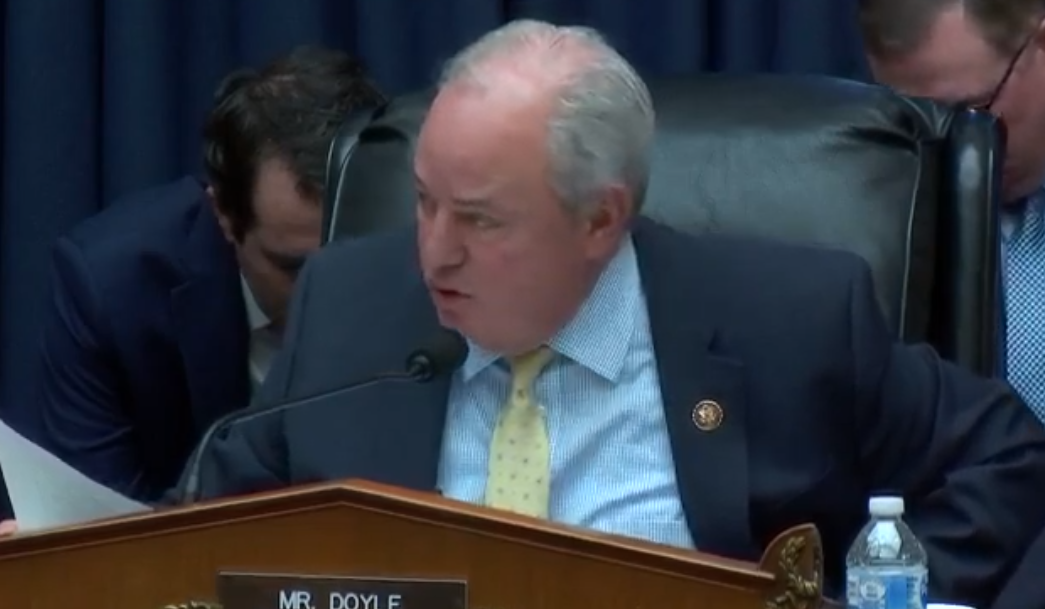
That bill would mandate an FCC auction.
The C-Band Alliance (CBA), comprising foreign satellite companies, has instead proposed a private-market sale rather than that FCC public auction, saying it will get the spectrum into the hands of carriers for 5G faster while still protecting the incumbent cable operators and broadcasters who get their network programming from distributors via C-Band satellite spectrum and providing some money to the treasury.
The key issues for legislators on both sides are freeing up as much spectrum for 5G as quickly as possible, and preferably with lots of the proceeds going to the Treasury for broadband deployment and next-gen 911.
Doyle, who presided over the hearing, said that he found a lot about the CBA proposal "deeply disturbing," primarily that those companies would get the lion's share of a potential $60 billion a public or private auction could generate, money that could go to rural broadband buildouts, telehealth and next-gen 911.
Doyle said the FCC and Congress needed to get the C-Band repurposing right because the spectrum was a "precious national resource." He said that if Congress gave away most of that $60 billion to foreign satellite companies, the American people would never forget it.
The smarter way to stay on top of the multichannel video marketplace. Sign up below.
Rep. Frank Pallone (D-N.J.), chairman of the parent Energy & Commerce Committee said he did not necessarily believe the CBA argument that a private sale would get the spectrum to 5G faster than an FCC auction, and said there would be novel enforcement issues of CBA's proposal to turn over some undetermined amount of the proceeds to the Treasury. He said an FCC auction would be more likely to be fair, transparent and competitive and pointed to the FCC's expertise in holding over 100 spectrum auctions.
Latta reiterated his support for the FCC auction legislation, but said that there were a number of complex issues that needed to be resolved, including protecting incumbents, getting it into the hands of carriers expeditiously, insuring a fair and transparent process, promoting auction participation by smaller users, and avoiding litigation.
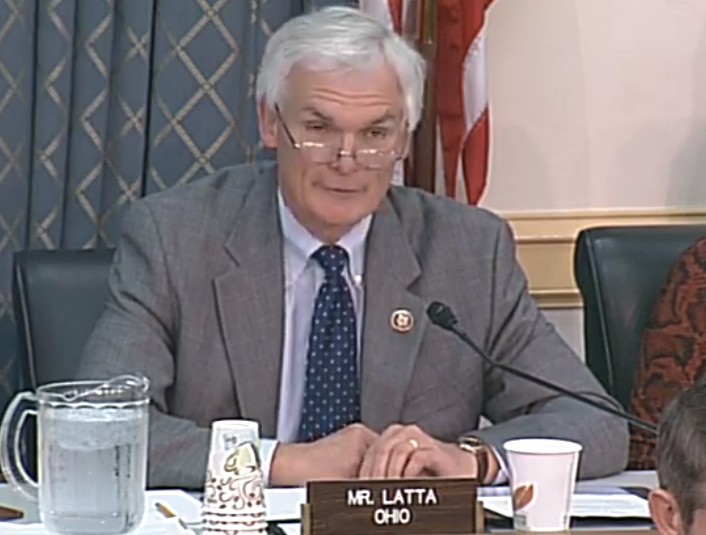
Johnson said he preferred the FCC auction because he thought it would insure that transparency and competitive process, as well as insuring that taxpayers were the primary beneficiaries.
Rep. Johnson said FCC licenses don't confer property rights and that while he was all behind speeding 5G, he said he was focused on those without basic broadband access, which he said was hollowing out communities in his district and nationwide.
Johnson said he is tired of the "closing rural divide talk" and wants some action, which a public auction could provide in the form of billions for the Treasury and Congress allocating funds for closing the digital divide.
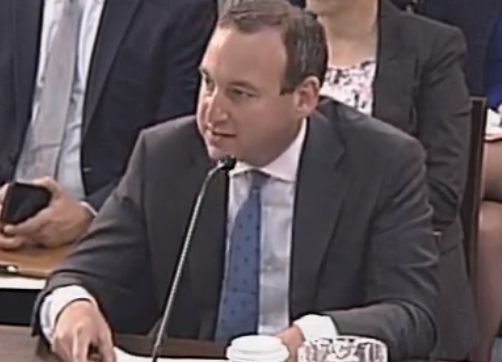
Witnesses from ACA Connects and Citizens Against Government Waste made their own cases for a public auction. ACA SVP Ross Lieberman also plugged its proposal for freeing up 370 MHz by migrating satellite delivery of network programming to fiber.
CAGW director of technology and telecommunications policy Deborah Collier said that the spectrum at auction was the American public's and that the FCC could not allow private sales with most of the proceeds going to satellite operators rather than the Treasury.
She said the FCC did not have the authority to turn over a public asset, the American taxpayers' spectrum, to a private sale. She also pointed out that there would be lawsuits if the FCC approved a private sale, which would delay the repurposing and the argument that a private sale would be more expeditious.
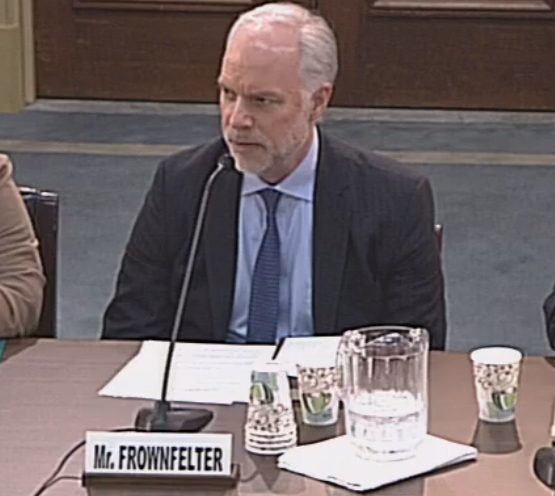
Also arguing for a public sale was Public Knowledge policy director Phillip Berenbroick. He said it supports what it called the common sense C-Band Act for the speedy repurposing of spectrum via a public auction that will produce revenues for that public. He said the benefits of any reallocation must redound to the public, which includes freeing up spectrum for 5G, making the spectrum more efficient, and recouping tens of billions for the Treasury to, among other things, close the digital divide.
He said an FCC auction is the faster, proven, legal approach. He said the best way to speed the auction would be for Congress to push the FCC to expedite it, which might include giving it money to update the auction process if that is necessary.
Something of a lone voice in the hearing was James Frownfelter chairman of ABS and former head of one PanAmSat, which built the C-Band distribution system "from scratch." He was the only witness who explicitly backed a private sale--a Cisco witness said it was not taking a side, but did say that "government-led spectrum transitions have been tremendously difficult and slow."
CBA has just upped its spectrum reclamation proposal from 200 MHz to 300 MHz.
Frownfelter said that the FCC reclaiming and auctioning satellite spectrum in a public auction would be tantamount to satellite operators having their spectrum "largely confiscated without compensation."
Frownfelter said a significant amount of the proceeds from a private sale would be directed by the FCC to the Treasury--Collier had suggested that the CBA's proposed voluntary payment could be as little as a dollar--and suggested that Treasury cut would be about 25%. He also said there would be other conditions to insure a transparent and fair auction that protected incumbents, and said that private sale would be the fastest way to roll out 5G.
Lieberman said that Frownfelter's suggestion the reclamation and repurposing would be faster with a private auction did not take into account that smaller operators would be shouldering much of the repurposing load because they would have to be switching out head-end tech under the CBA proposal of using compression to be able to repurpose 300 MHz--cable ops want to repurpose 370 MHz via a migration to fiber.
Frownfelter said Lieberman was overstating the difficulty of the compression upgrade.
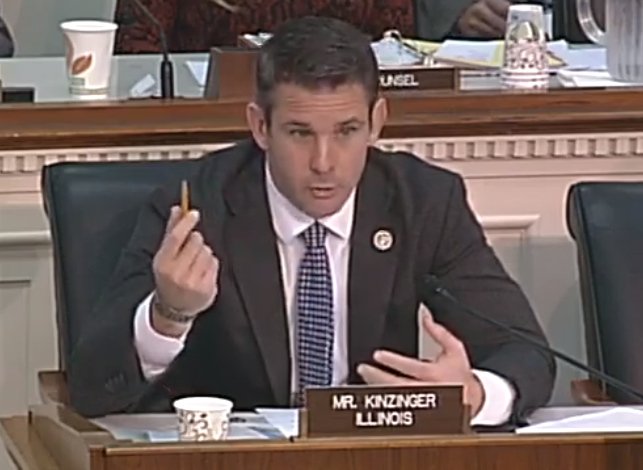
Rep. Adam Kinzinger (R-Ill.) asked whether Cisco would support a public auction if Congress or the FCC could expedite it. Campbell said, yes, if Congress can speed the FCC process or the FCC speed the process, "that would be great." But he also said that one benefit of a private auction might be that it signals to others in bands that the government might be looking to clear that they should be cooperative, providing a carrot rather than a stick.
"As the FCC works to address how the present occupants and new uses may simultaneously be accommodated in 500 MHz of that band, Chairman Doyle is right to inquire about the process which will bring that about," said Claude Aiken, president of WISPA, which represents fixed wireless service providers.
But Aiken emphasized that the FCC did not have a binary choice.
"But we’d like to offer a reminder: There are other viable plans to repurpose the C-band than solely auctioning off spectrum to mobile 5G providers for their largely urban clientele. More than 250 entities have supported a competing proposal by the Broadband Access Coalition (BAC), which employs both an auction and sharing of that valuable spectrum to open up the C-band for other uses, too.
"The BAC (of which we are a member) has put forward a plan which urges the Commission to clear 200 MHz for mobile providers, and, with the remaining 300 MHz, allow sharing between incumbent satellite earth stations and fixed wireless providers, or WISPs. A technical study produced by WISPA, Google and Microsoft shows that sharing can safely and effectively occur in the C-band, giving access to approximately 80 million, mostly rural Americans to blazing fast broadband services."
Contributing editor John Eggerton has been an editor and/or writer on media regulation, legislation and policy for over four decades, including covering the FCC, FTC, Congress, the major media trade associations, and the federal courts. In addition to Multichannel News and Broadcasting + Cable, his work has appeared in Radio World, TV Technology, TV Fax, This Week in Consumer Electronics, Variety and the Encyclopedia Britannica.

